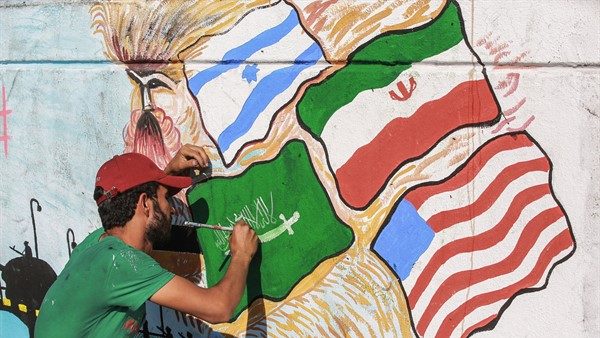Today at WPR, we’re covering how Latin America’s leftist governments are responding to the war in Gaza and previewing Poland’s upcoming election.
But first, here’s our take on today’s top story.
Israel-Gaza: Demonstrations, rallies and vigils have been staged across the globe in response to Hamas’ cross-border attack on Israel this past weekend and Israel’s subsequent retaliation on Gaza, with supporters of Israel and pro-Palestinian movements gathering for protests in capitals and other major cities. (CNN)
Our Take: Every time this conflict flares up, it very quickly elicits reactions around the world from both populations and governments, with those reactions in turn eliciting further reactions. This time, the brutality of Hamas’ attack and the ferocity of Israel’s retaliation has meant that those reactions have been particularly intense, with implications for both domestic and global politics.
Unsurprisingly, the Israel-Hamas war has had its usual polarizing effect, particularly in the U.S. and European countries with large numbers of people of Palestinian and Jewish descent, as well as other supporters of the Palestinian cause and Israeli state. As a result, since last weekend, the West has seen widespread dueling protests where enflamed passions have often overshadowed nuance and empathy for the other side of this conflict, even if the most egregious behavior represents a minority of those participating.
Meanwhile, some governments have struggled to navigate the tension between expressing solidarity with Israel and acknowledging the plight of Palestinians under Israeli occupation. Those that have tried to do both have been met with a backlash for being too equivocal. (Frida Ghitis’ column today highlights this dynamic with regard to Latin America’s leftist leaders.)
These protests and how governments respond to them are not only domestic issues. As we mentioned in a newsletter earlier this week, demonstrations of solidarity for the Palestinians across the Muslim and Arab world will put pressure on governments that have been seeking to expand and deepen ties with Israel. And the choice to ban some pro-Palestinian protests—as a handful of French cities have done due to concerns about antisemitism—risks creating a backlash in Muslim-majority countries.
Put simply, the global reach of the Israeli-Palestinian conflict means that differing responses to the current war between Israel and Hamas risk raising tensions not only within countries, but between them.

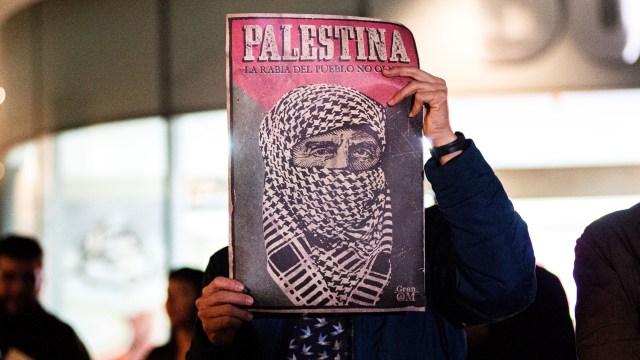
Latin America’s Left Struggles to Respond to the Israel-Hamas War
When news broke that Hamas terrorists had engaged in horrifying acts of violence against Israeli civilians, the reaction from Western capitals was almost unanimously supportive of Israel.
For leftist governments in South America, however, the unfolding confrontation between Hamas, which some of them view as a liberation movement of the downtrodden, and Israel, a country many of them view as damnably oppressive, became the source of domestic tensions. As columnist Frida Ghitis writes, some leaders visibly struggled to modulate their response, while others seemed to delight in the controversy.
Poland’s Elections Are Making Everyone Sweat
Poland’s parliamentary elections on Oct. 15 could cement the ruling Law and Justice party’s hold on power—or usher in its demise. From Kyiv to Washington, via Berlin and Brussels, Warsaw’s partners and allies will be watching closely.
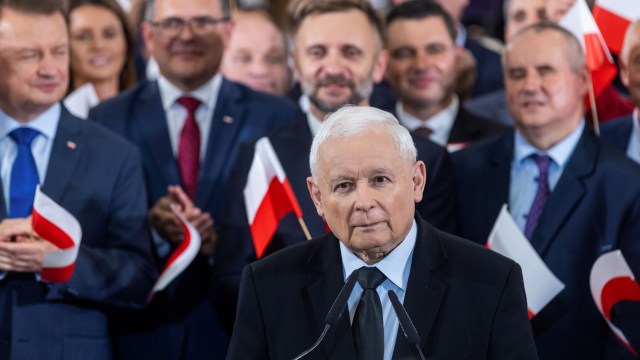
Once again, this election centers on the rivalry between Law and Justice and the centrist Civic Platform party, a rivalry that has dominated Polish politics since the mid-2000s. As Annabelle Chapman writes, the issues at the forefront of the campaign have been migration and Ukraine—both of which have eclipsed other topics, such as the economic situation or the threat posed by Russia.

We want to hear your take on the issues we cover. We’ll select one person from those who answer the question below to receive a free one-month extension of their WPR subscription.
This week’s question: Last week, the United Nations Security Council authorized a multinational armed mission to Haiti. Can this mission turn around Haiti’s security crisis?
For more context: Read columns on the mission and its chances of success by James Bosworth and Charli Carpenter.

Panama and Costa Rica have announced a bus service for thousands of migrants passing through Panama to the Costa Rican border. The move is an attempt to speed along the growing number of migrants passing through the infamously dangerous Darien Gap route and disrupt smuggling networks within Panama.
The move comes as migration patterns in Central America, in terms of both routes taken and countries of origin, have shifted dramatically over the past 10 years. As Adam Isacson wrote last year, U.S. policy on the border and regional migration needs to adapt to the new reality.
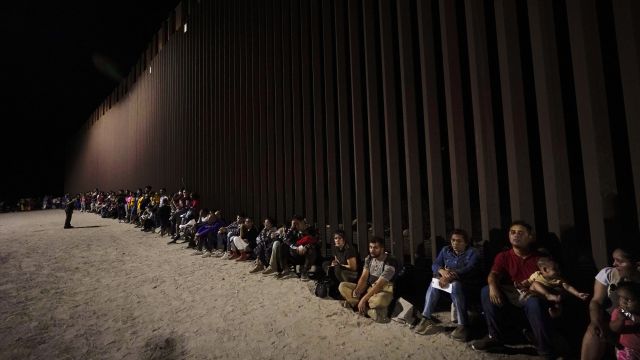
U.S. Border Policy Must Adapt to the Region’s New Migration Patterns
Oct. 12, 2022 | Nonstop commentary in the U.S. about a “border crisis” fails to convey a dramatic shift in the migrant population over the past nine years. Read more.
In a state visit to Kenya later this month, King Charles of Britain will acknowledge the “painful aspects” of Britain’s colonization of the country, particularly the U.K.’s violent counterinsurgency operation during the period known as “the emergency,” which ran from 1952 to 1960.
As Chris Ògúnmọ́dẹdé wrote following King Philippe of Belgium’s visit to the Democratic Republic of Congo last year, visits by European dignitaries to Africa now often follow a similar script—apologies and expressions of “regret,” followed by a desire to “turn the page.” As he wrote then, these framing and narratives rarely take African opinions into account.
Belgium’s King Followed the European Script for His Congo Visit
June 17, 2022 | King Philippe’s “landmark” six-day visit to Congo was characterized by Brussels as an attempt to grapple with its brutal colonial past. Read more.
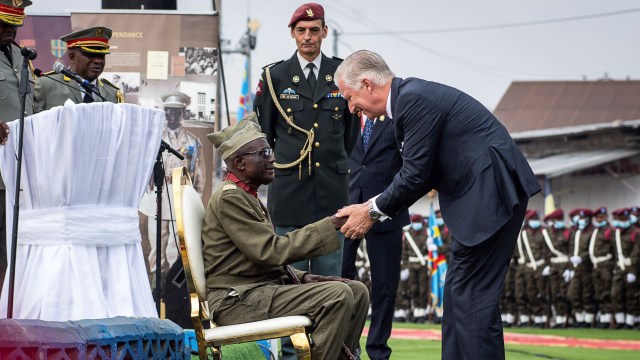
More From WPR
- Alexander Clarkson on the Israel-Hamas war and Egypt.
- Amanda Coakley on domestic politics in wartime Ukraine.
- Charli Carpenter on the U.N. mission in Haiti.
- Geoffrey Miller on New Zealand’s upcoming election.

